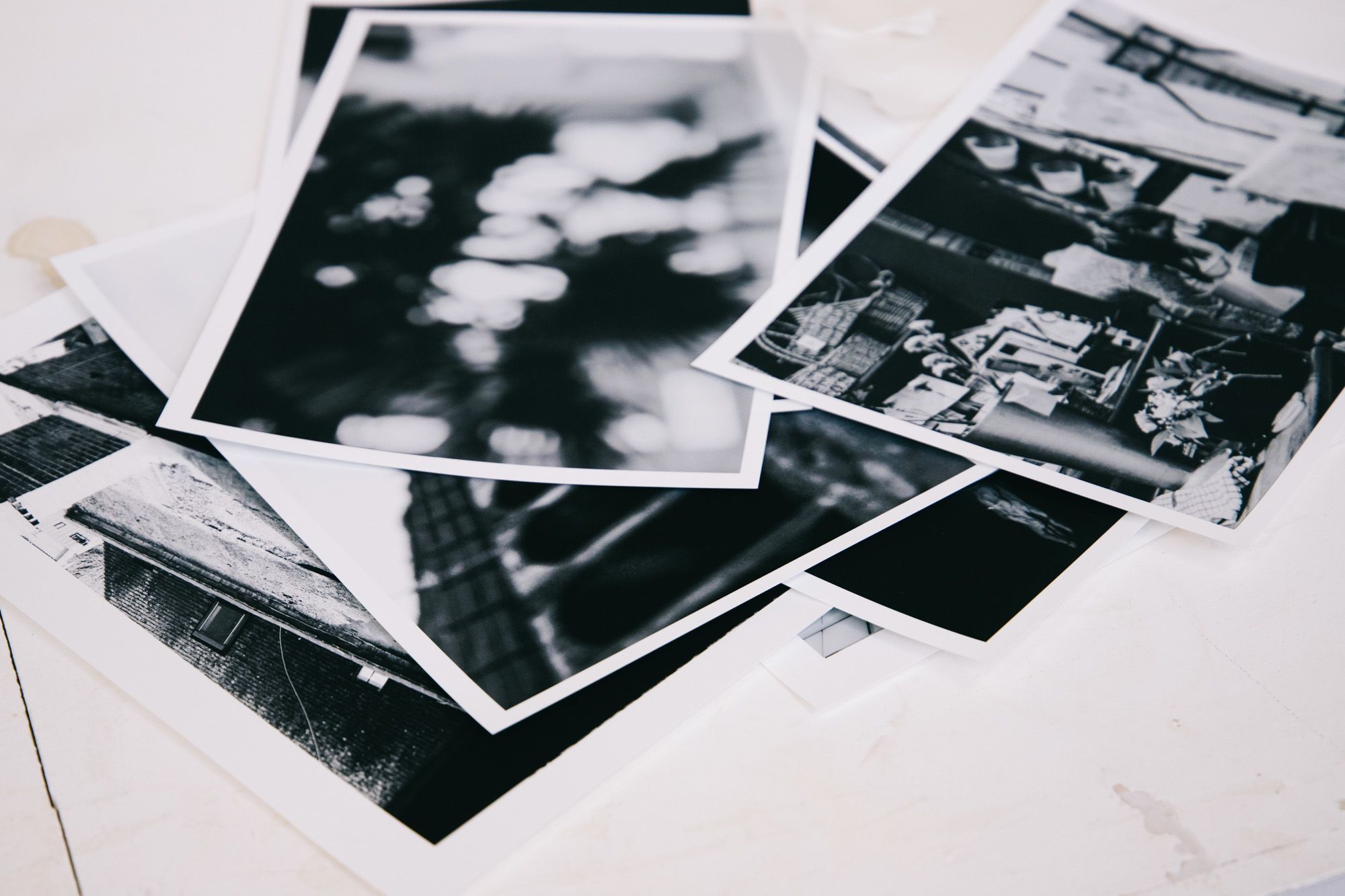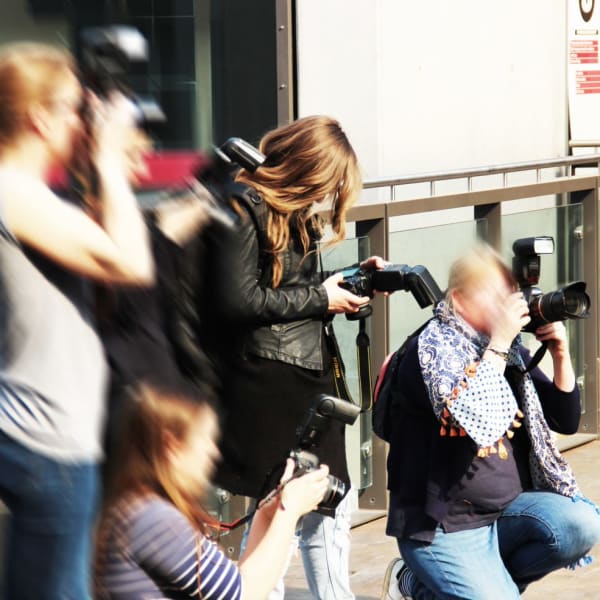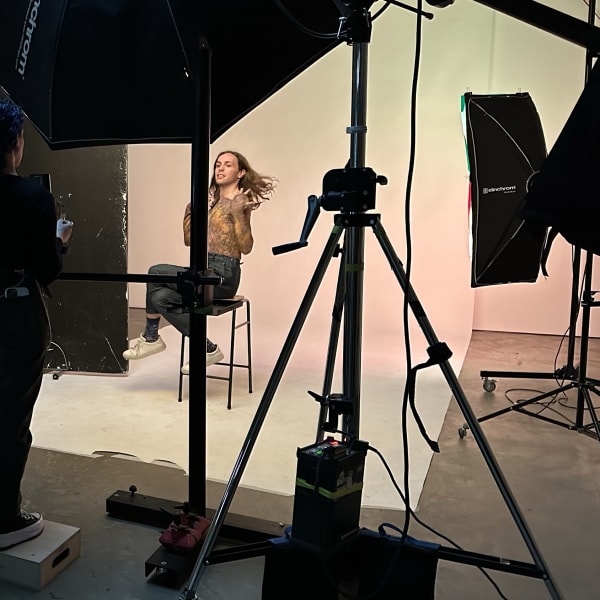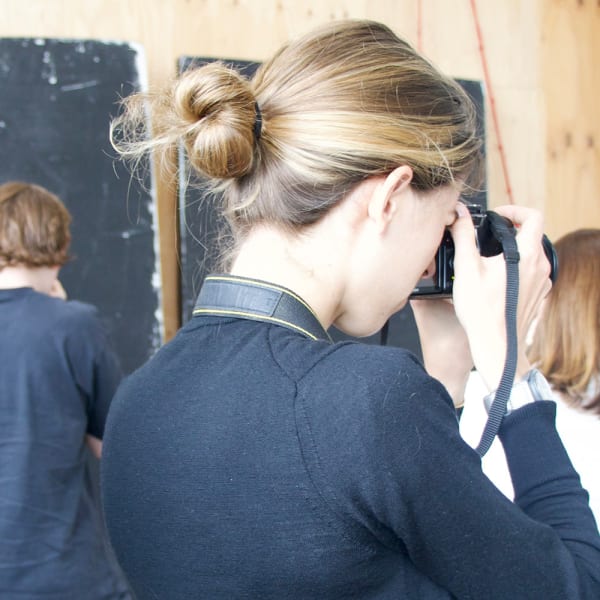
How to improve your photography skills

- Written byCarys Thomas
- Published date 02 February 2025

Did you know the word “photography” comes from the Greek “photos” meaning “light”, and ‘graphein” meaning “to draw”, translating as “drawing with light”? This apt description captures the art of photography as a means of recording and reflecting on the moments that are important to us.
Finding your voice as a photographer is something that takes time, regardless of the style of photography you’re interested in pursuing. If you’re interested in finding out more about the different types of photography, take a look at our guide on 5 types of photography to master.
To find out how you can take your photography skills to the next level, we caught up with award-winning photographer, academic and UAL short course tutor, Mark Aitken, to hear about his Ideas for Successful Photography Short Course and get some useful tips on how to capture the perfect shot.
For more inspiration on how to develop your photography skills at home, take a look at our guide on Developing your skills at home: Photography and Scriptwriting with Mark Aitken.
Read on for our 5 tips on how to improve your photography skills.
1# Question your work
Mark recommends questioning your work to improve your approach, “developing ideas towards taking successful photographs involves asking a lot of questions,” he says. Mark’s Ideas for Successful Photography Short Course can help you investigate your photography practice by introducing you to new ways of exploring your work. Discussing your work in this way will help you gain insight into where your ideas come from and what you’re trying to achieve.
“With the equipment and technology we have now, it’s very easy to take a well-exposed picture,” he says, “phones and filters can do so much of the work for you. It’s great that we have access to these tools because it means we don’t have to worry about the technical side as much and we can just focus on why we are taking the photograph and what we want to capture. It’s really important to think about why you are taking pictures, and to question how many you should take.”
Mark is particularly inspired by the work of American photographer William Eggleston. “Eggleston is a really interesting photographer because he shows a lot of confidence and security in what he is doing. He famously only ever takes one frame and then moves on. How confident are you when you select a frame – in the viewfinder or in the edit? Could you just take one frame or do you need to cover every angle?”
2# Make connections
Empathy plays an important role in the art of photography. Mark refers to portrait photography as an example, “if you’re taking a photo of someone, you need to connect with them and get them to feel like you want to know about them. If people feel like you’re interested in what they have to say, they’re going to be much more relaxed and will probably give you more time. It will also show that you’re serious about your work.”
If your subject seems uncomfortable, it’s your responsibility as the photographer to think about how you can change the dynamic. Mark suggests asking yourself “how can I develop a relationship with the subject so that it’s somehow evident in the resulting picture?”
3# Understand your influences
Drawing inspiration from photography and other art forms can help you find your own creative voice by exploring the many stylistic and creative possibilities that you can pursue.
Try to stay open to new possibilities, visit galleries and exhibitions, and search for design inspiration online. Take a look at how these students found inspiration for their documentary photography.
As Mark reiterates, “it’s important to develop your own voice while remembering what came before us. Which photograph of yours speaks to another work?”
4# Don't be afraid to break the rules
When you first start taking photographs, you may find it difficult to know what to focus on. If you’re struggling to decide what you should take photographs of, it’s useful to set yourself some practical projects that will take you out of your comfort zone.
“It’s good to set yourself projects to find your voice and work out what you’re really interested in" says Mark. "Make your own rules and boundaries. Plan a timeframe to get out and document what you see in a particular area. Try to speak to people in that area, or ask if you can take some portraits. It’s really important to do that for yourself.”
Students on Marks’ Ideas for Successful Photography Short Course are encouraged to take on such practical projects. “The course is very pro-active. Students are encouraged to take photographs every day and present them to the group. We discuss what went well and address any mistakes that were made – it's all worth talking about.”
5# Learn to embrace criticism
Although it can be difficult to hear, it’s important to remember that constructive criticism can offer many opportunities for growth and improvement. Receiving feedback from others can you give new perspective and inspiration for future projects and assignments.
There may be aspects of your work that you hadn’t considered before which you can now investigate using valuable feedback from peers, colleagues and other creative professionals.
“Sharing criticism and analysis with like-minded practitioners establishes your voice as a photographer,” says Mark. Mark actively encourages students to reflect on and discuss their work in productive terms on the Ideas for Successful Photography Short Course.
If you’re looking for some more ideas on how to improve your photography skills, check out our guide on how to tell a story through photography for some great tips on how to capture the moment effectively.
Whether you’re looking to enhance your photography skills or develop a portfolio of work that reflects your abilities, our range of Photography Short Courses can help you accomplish your goals. Take a look at our upcoming short courses to find out more.


